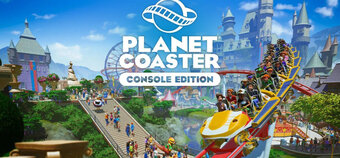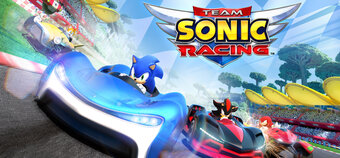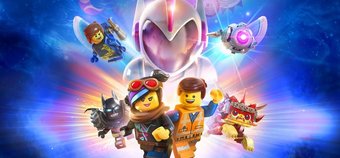It's an announcement that, for some, has been a long time coming. This morning, Nintendo announced that, after years of developing games only for Nintendo formats, they would now be expanding to make games for "smart devices" (which presumably means smartphones and tablets to you and I), in partnership with a Japanese mobile developer, DeNA. And this wasn't just a half baked announcement. Although no games were shown off at the hastily arranged press conference, this is something Nintendo are clearly throwing a lot of weight behind, as they announced that there were no IPs, characters, or franchises deemed off limits - which means that free-to-play Pokémon game of your dreams/nightmares could soon be on the cards.
So, what do we know so far? In a nutshell, this is a partnership between two big Japanese games companies, and it in turn consists of two parts. On the one hand, DeNA will be helping Nintendo develop a much vaunted unified user account system, to tie together Nintendo players across all platforms. Whether you're playing on Wii U, 3DS or a smartphone, or just checking up on your stats on a PC, you'll have one user account tying everything together, much like on the Sony or Microsoft consoles - something fans have long been hoping for, as the current user account system causes plenty of problems if your console should ever break. So far, so good. The other half of the collaboration is one of games, where Nintendo and DeNA will work together to create games for smartphones and tablets based on popular Nintendo characters. As a kind of aside to the rest of the proceedings, Nintendo also mentioned that they were working on a brand new console as well, currently codenamed the Nintendo NX - which, we'll be honest, has us more excited in a single line than the rest of the news put together, but still. It's the smartphone news we're looking at here, and the effect this might have.
After thirty years of developing games exclusively for their own formats, Nintendo's arm has been twisted, and they'll now also be making smartphone games going forward. So, what does this mean for Nintendo - and how did we get here in the first place?
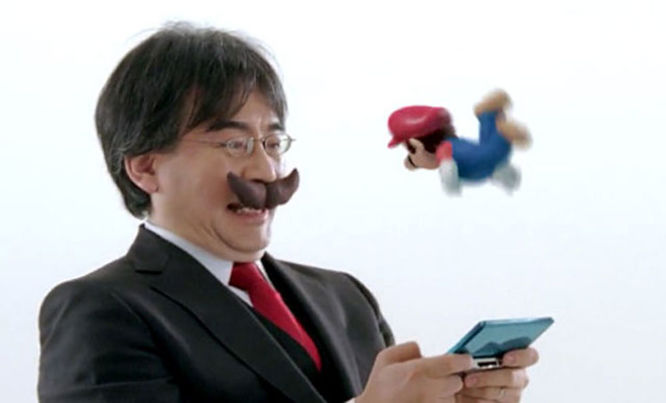
Nintendo have never been ones to take themselves too seriously...
The announcement that Nintendo will also be developing games for smartphones is one that analysts, and much of the received wisdom of the games press have been calling for for a long, long time. Week after week, month after month, articles would pop up on a whole variety of sites from another writer who'd bought into the groupthink, each proclaiming in increasingly bombastic ways how Nintendo were "doomed". Logic and reasoning went out the window, hysteria gripped writers, and smartphones were going to kill traditional consoles (and traditional games), with the only way the company could ever hope to save themselves being to throw in the towel, and develop games for smartphones. Free to play Pokémon, Mario, or Zelda games, fuelled by ethically questionable, gameplay tarnishing micro-transactions, were the only way the company could ever hope to remain profitable, because that's what everyone else was doing. And how can you ever run a successful business by doing things differently, eh?
Of course, the critics are entirely wrong - but in this instance, it doesn't really matter if they're wrong or right. As the saying goes, it doesn't matter how big a lie you're telling, nor how unbelievable it is - the more you say it, and the more you get people to repeat it, the more they'll believe that its true. By creating this atmosphere, and making investors genuinely believe that Nintendo were doomed, the press, and the analysts have essentially forced Nintendo's arm here. And that makes this a bit of a gamble.
Nintendo has always been a company that's thrived by doing things differently - by not just going with the flow. Its ability to think outside the box is second to none, and its this passion for taking the path less trodden that's led it to some of its greatest successes. After all, the "Nintendo R DOOMED" drum is one that's been beaten well over the years. First, they laughed at the DS - a "horribly under specced", "gimmicky" handheld that would pale in comparison to Sony's "gamer" focused PSP. Roll on a few years later, and the DS wiped the floor with it. Then came the Wii, and again the hardcore press were in hysterics. Nintendo were at it again, releasing an "underpowered", "kiddy" console that no-one would ever take seriously. So imagine how they must have felt when Just Dance knocked Call of Duty off the top of the charts.
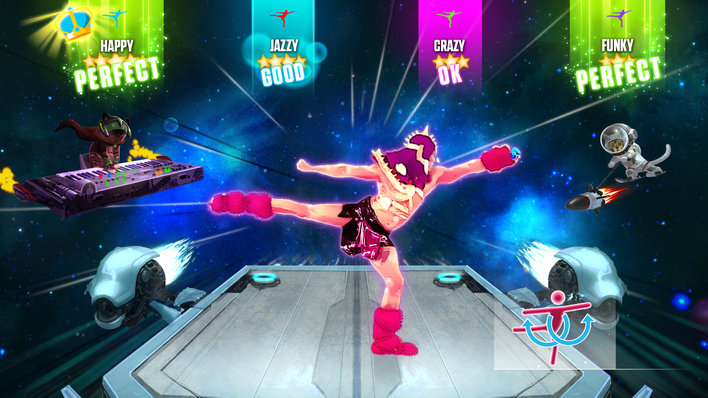
Just Dance, Call of Duty killer? You'd better believe it
But never ones to give up, the criticism kept coming. The 3DS would fail due to the dominance of smartphones, as journalists and analysts became wilfully blind of market dynamics. As far as they were concerned, the same person who has a quick blast on Bejewelled Blitz on the way in to work is the very same person who should have been buying the 3DS, and plonking down £30 to delve into one of Nintendo's many unique and varied worlds. After all, when faced with competition like Flappy Bird, how could Nintendo's designers ever hope to compete? Therefore, the received wisdom was that the 3DS would be a massive failure - and, lo and behold, they were wrong again.
Although this time, something changed. While 50 million sales (so far) is hardly a disappointment, the 3DS hasn't quite managed to capture the same level of interest as the DS did. The reasons for this are many - but the critics smelt blood. In their minds "proven right", the criticism grew louder, and Nintendo seemingly began to wonder if they were doing the right thing by sticking their fingers in their ears and essentially doing the opposite of what the games press had suggested. So in an attempt to make amends, and do as any responsible business would do - and listen to its "fans" - for their next console, Nintendo did an about turn, and listened to the critics. And that was their biggest mistake.
Caving in to pressure, Nintendo began to believe that the more casual audience was dead, or at the very least, had moved on, and wouldn't be enough to sustain a console on its own. Of course, that wasn't true - but they were one voice against several that were being much louder. Listening to their critics, Nintendo decided to try and straddle the two audiences - but this is where things went wrong. Going down the same path as the Wii, with a (comparatively) underpowered console, and a launch line-up that would get the whole family involved, they instead decided to have all of the messaging, branding, and advertising about the console make it out to be a hardcore games machine. The ads showed only blokes, playing on their own in dingy basements, clearly targeting a "gamer" demographic, despite having a launch line-up that, beyond the mediocre ZombiU, had nothing for them. By listening to the naysayers, and trusting their head rather than their heart, Nintendo put their first foot wrong.
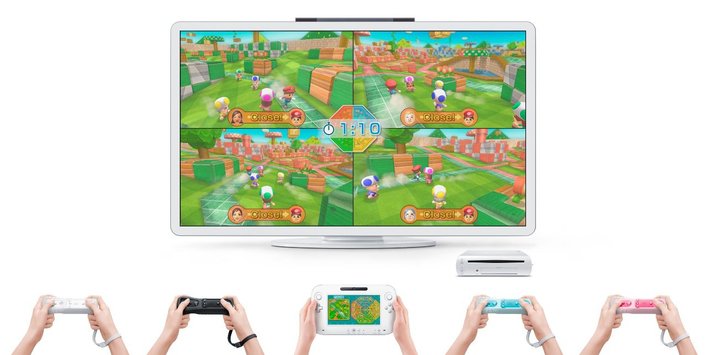
Nintendo's Wii U had buckets of appeal to families - yet it was marketed to the hardcore
Smelling blood, the naysayers have since ramped up their efforts. With the Wii U floundering, the voices calling for a change in strategy from Nintendo have grown ever louder. All they need to is make mobile games, they said. There's a market there, they said. And the shareholders started to listen. Nintendo's back was essentially against the wall. Analysts were convinced smartphone games are the only way forward, shareholders were convinced too, and all based on nothing more than hearsay and received wisdom. Even this article from Reuters about the recent Nintendo smartphone announcement continues the same lie, stating how Nintendo have been "losing customers to both smartphone gaming app makers and console rivals like PlayStation maker Sony Corp and Xbox maker Microsoft Corp.". And it's far from true. Ask yourself this - how many people do you know who've left their consoles behind to play exclusively on smartphones? We can't think of any. In fact, perhaps the closest we've come is someone who bought their kid a tablet, after being told how amazing smartphone games are, only for their child to be disappointed by the reality. All the games may well "be free", but when a few weeks later the tablet's going unplayed, and the kid's begging for more games on their 3DS, because smartphone games simply can't compare, which is the game that should have the market?
Still, it all comes back to "the big lie". And so, the stage was set. With no evidence that these customers were leaving because they preferred smartphone games, the great and good of the games industry analysts had decided it must be true, because someone said it was. The pressure on Nintendo boss, Iwata, had become immense, and something had to cave. While Iwata himself has spoken out in previous years against moving to smartphones, with (completely valid) worries about devaluing games, not to mention the different audience, eventually, he was going to have to change course. When Wii U sales came in weaker than expected (due to the advertising targeting the wrong market), the writing was on the wall. But transitioning to smartphones is going to be nowhere near as easy as it seems.
When they were making the announcement, Nintendo have framed this as not an abandonment of consoles, but as an addition to their console line-up. Indeed, they even mentioned a brand new machine in the works (the Nintendo NX), and their hope is that people will play Nintendo games on smartphones, see that they're amazing, and then decide to invest in a Wii U, or 3DS, and play the proper versions. The only problem is, we can't think of a single example where this idea has worked in the past.
Most people playing "freemium" games like Skylanders Lost Islands or The Simpsons: Tapped Out will be fans of the game or show in question - that's why they download the app. Few people are going to download the Simpsons app on a whim, and then decide they love it so much they'll watch the show - and that number will be even smaller for Skylanders. Skylanders: Lost Islands is a typical world builder freemium app, where you can build houses, buildings, and send your Skylanders on adventures to get money, energy, and occasionally, jewels, the game's premium currency. The twist here is that while you can pay real money to unlock Skylander characters in the game, you can also "link" your toys to unlock them "for free". But how many people do you think have gone out and bought physical Skylanders because they like the app so much? And how many people do you think will have gone and bought the game off the back of the app?
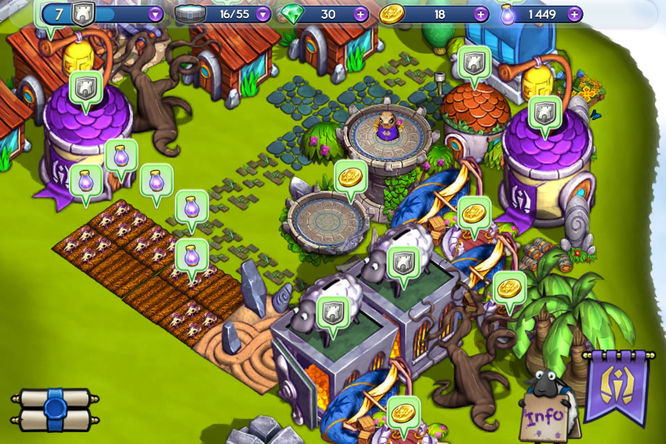
Skylanders: Lost Islands. Probably not driving sales of figures.
The logic Nintendo seem to be applying here (or what they're saying publicly) seems to be a little bit backwards. Sony have made tie-in apps before, releasing Knack's Quest, a match three game to promote their PS4 launch title Knack, and more recently, Fat Princess: Piece of Cake, another match three game that didn't so much promote the PS3 game of the same name, as actually give it away for free (if you completed 20 levels, you got a free download code for the game). Neither of them have proved to be a cash cow in either respect, with Knack still selling only middly well.
But so what if the games don't drive people to buy games on Nintendo formats. Couldn't they still be a success on their own? Well, maybe. But if they do, they won't be Nintendo games like we've come to know and love - and it'll still be a heck of an uphill struggle. First of all, the audience on mobile is totally different. This is an audience that's grown accustomed to never having to pay for any of their games - and so any titles will likely have to be free to play. Indeed, some 98% of mobile revenue comes from free to play games - and that means they'll be stuffed with micro-transactions, time limits, or "pay to win" catches - much like everything we hated about Pokémon Shuffle. Yes, they'll feature familiar characters - household names like Mario, Pokémon, or Zelda - but is that enough to make them a success on their own? Out of all the recent mobile success stories, how many have been a success because they've slapped a popular game character on the front? Perhaps the only one we can think of is Kim Kardashian: Hollywood, but that's a) a celebrity endorsement, and b) a flash in the pan. While it may have grossed an incredible $43m in three months, how many of those users do you think could be classed as a "lost user" for Nintendo? Someone who likes games enough to have bought a Wii or Wii U in the past?
Mobile users are fickle. If a "good user" is defined as someone who opens an app three times or more, yet alone spends a single penny on it, this is going to be a very tough market to crack. It's not the free for all gold rush the analysts make it out to be - especially as most of the recent successes have been based on viral appeal and word of mouth as opposed to the quality of the game. Flappy Bird, Angry Birds, Words with Friends - most smartphone hits aren't so much revolutionary games as basic ones that are in the right place at the right time. And that means that any time Nintendo invests in them is a risk.
What makes it even more of a risk is that the one thing the Wii U needs right now is Nintendo's full attention. While there are big games on the horizon for the troubled home console, there's nothing "right now". Nintendo has said the delay in getting games out due to unexpected issues it's faced making the transition to high definition games. That isn't really all that much of an excuse - but even if it is the case, it suggests Nintendo need more staff developing the games, not fewer. By partnering with DeNA for its mobile efforts, Nintendo won't have to do most of the heavy lifting itself - but it's unclear how much development Nintendo will be taking on internally. Every person assigned to making mobile games is another pair of eyes taken off the ball, and another brain at work on something that may have no guarantee of success. With Nintendo currently hard at work on a new console - codenamed the NX - all hands should really be to the wheel making sure this will have a launch line-up that will blow everyone away. If they take too many eyes off the ball, Nintendo may well end up accidentally sealing their next console's fate.

Zelda Wii U is looking like it might be the console's last hurrah. But what a hurrah it'll be.
In an ideal world, it'll turn out that the announcement today was mostly to please the investors, and that Nintendo won't be investing too heavily in mobile games. With the hastily announced press conference coming just a few short weeks after the company was forced to lower its sales forecasts, the chance of this being to placate rather than as a genuine change in strategy seems at least plausible. After all, a unified user account system across all formats - one mii, one account, one download log - is a key part of Nintendo's strategy, and it's something they've talked about before. With DeNA on board, they can offload a lot of the technical side of things to a company that knows what they're doing when it comes to building an online service (as DeNA used to run several online hubs). Perhaps most exciting is what this means for the Nintendo NX. Could we finally be getting a console that has a decent online service, to back up Nintendo's first class games? Will we have things other consoles have taken for granted, like a unified friends list, party chat, cross-game invites, and achievements? Could this be Nintendo essentially going on manoeuvres, to signal they're changing strategy, before returning with a bang at next year's E3, with their brand new console?
Only time will tell. But if history's taught us one thing, it's to never count Nintendo out.







